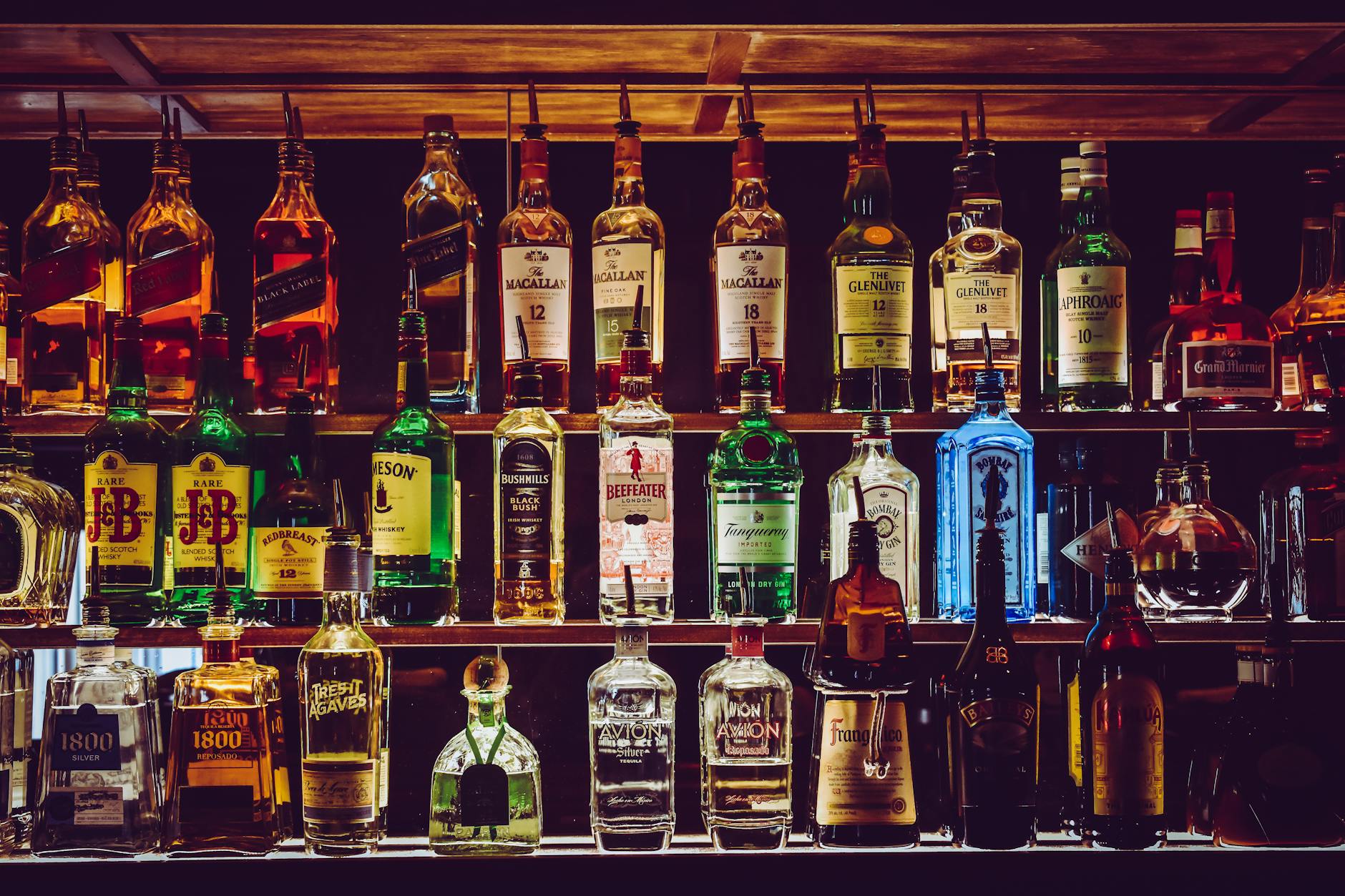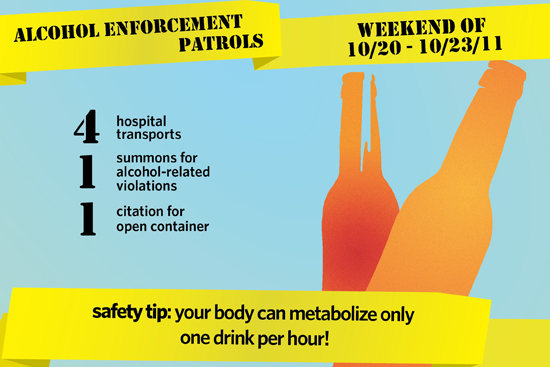Unveiling the Mystery: Discover the Surprising Truth Behind the Number of Beers Needed to Get Truly Drunk!

Image courtesy of Chris F via Pexels
Table of Contents
Imagine sitting at a bar with friends, laughing and enjoying a few beers. As the night progresses, you may start pondering a question that has baffled many: “How many beers does it take to get drunk?” It’s a question that has sparked curiosity among beer enthusiasts, scientists, and partygoers alike. In this comprehensive blog post, we will embark on a fascinating journey to unveil the mystery and delve deep into the science behind alcohol metabolism, individual tolerance levels, and the various factors that influence intoxication.
The Science Behind Alcohol Metabolism
Alcohol metabolism is a complex process that involves the breakdown of ethanol, the main component found in alcoholic beverages. When alcohol is consumed it is rapidly absorbed into the bloodstream through the stomach and small intestine. Here, it makes its way to the liver, which plays a crucial role in ethanol metabolism.
The liver produces enzymes like alcohol dehydrogenase and acetaldehyde dehydrogenase that work to break down alcohol into less toxic substances. As the liver metabolizes alcohol, it guides the pace of intoxication by controlling the blood alcohol concentration (BAC) levels. However, each individual’s metabolic rate can vary, affecting how quickly alcohol is processed in their bodies.
Understanding Individual Tolerance Levels
Alcohol tolerance refers to an individual’s ability to withstand the effects of alcohol. Factors such as genetics, body weight, and gender can influence a person’s alcohol tolerance level. Some people may possess enzymes that metabolize alcohol more efficiently, leading to a higher tolerance, while others may have genetic variations that make it more difficult for them to break down alcohol effectively.
Body weight also plays a significant role in alcohol tolerance. Generally, individuals with a higher body weight have a larger volume of distribution, allowing their bodies to dilute the alcohol more effectively. Additionally, men tend to have higher alcohol tolerance compared to women, mainly due to differences in body composition and enzyme levels.
Factors Influencing Intoxication
While the number of beers it takes to get drunk may vary significantly among different individuals, it is essential to consider various factors that influence intoxication levels. One critical factor is the type and alcohol content of the beverage consumed. Beers with higher alcohol content will have a more pronounced effect on intoxication levels compared to lighter beers. Additionally, consuming alcohol on an empty stomach can lead to faster absorption and higher BAC levels, increasing the likelihood of getting drunk more quickly.

Image courtesy of www.bu.edu via Google Images
Hydration status and fatigue can also impact alcohol’s effects on the body. When well-hydrated, the body can process alcohol more efficiently. Conversely, dehydration can intensify the effects of alcohol, leading to increased intoxication. Fatigue can amplify the sedative effects of alcohol, further impairing cognitive functions and judgment.
It’s important to note that alcohol can interact with medications and exacerbate their effects. Many prescription and over-the-counter drugs can intensify the intoxicating effects of alcohol or produce other harmful side effects. It is crucial to consult with a healthcare professional to understand how alcohol may interact with any medications you are taking.
Practical Tips for Responsible Alcohol Consumption
While understanding the science behind alcohol metabolism and individual tolerance is fascinating, responsible alcohol consumption is paramount. Here are some practical tips to help you maintain a healthy and safe relationship with alcohol:
1. Know your limits: Take the time to understand your own alcohol tolerance. Listen to your body and recognize when you’ve had enough.
2. Moderate your intake: Understanding standard drink measurements can assist in moderating your alcohol consumption. Be aware that different beverages have varying alcohol content.
3. Pace yourself: Sip your drink slowly, allowing your body time to process the alcohol. Avoid the temptation to drink too quickly, as it can quickly lead to intoxication.
4. Eat before and during drinking: Consuming food before or during drinking can help slow the absorption of alcohol into your bloodstream.
5. Stay hydrated: Ensure you are well-hydrated by drinking water alongside your alcoholic beverages. This can help dilute the alcohol and reduce its impact.
6. Never drink and drive: Plan ahead for transportation if you are going to be drinking. Designate a sober driver, use rideshare services, or rely on public transportation to ensure you and others stay safe on the road.
7. Seek help if needed: If you or someone you know is struggling with alcohol misuse or addiction, reach out to a healthcare professional or support group for assistance.
Conclusion
So, how many beers does it really take to get drunk? The truth is, there is no definitive answer. Alcohol metabolism, individual tolerance levels, and various influencing factors make it impossible to pinpoint an exact number. The key to responsible alcohol consumption lies in knowing your limits, understanding the impact of those influencing factors, and making informed decisions to prioritize your safety and the safety of others.
Instead of fixating on finding an answer to the question, let’s focus on enjoying alcohol in moderation, savoring the flavors, and engaging in responsible drinking practices. Remember, knowledge, moderation, and responsible choices are the esoteric codes to unlocking a safe and enjoyable drinking experience.
Does the alcohol content of the beer affect how quickly someone gets drunk?
Yes, beers with higher alcohol content can lead to quicker intoxication compared to lighter beers. The higher the alcohol content, the more pronounced the effects will be.
Are there any factors that can make someone more or less susceptible to getting drunk?
Yes, individual factors such as genetics, body weight, gender, and even hydration levels and fatigue can affect a person’s susceptibility to alcohol and their ability to handle its effects.
Can medications interact with alcohol and increase its intoxicating effects?
Yes, alcohol can interact with medications and intensify their effects. It is crucial to consult with a healthcare professional to understand how alcohol may interact with any medications you are taking.
How can I consume alcohol responsibly?
To consume alcohol responsibly, it is important to know your limits, moderate your intake, pace yourself, eat before and during drinking sessions, stay hydrated, never drink and drive, and seek help if needed for alcohol misuse or addiction. Prioritize your safety and the safety of others.
Leave a Reply